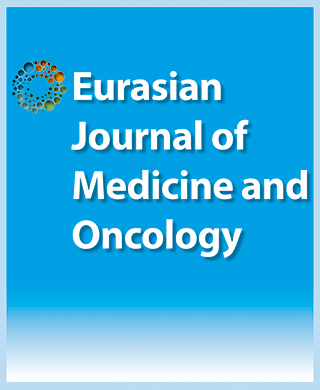

The Importance of Parent-Child Interaction in Protecting Mental Health After the Earthquake Disaster of the Century in Türkiye
Esra Demirci11Department of Child and Adolescent Psychiatry, Erciyes University Faculty of Medicine, Kayseri, Türkiye,
Earthquake, a natural disaster, is one of the most import ant fundamental problems of Turkey. Two earthquakes with magnitudes 7.8 and 7.5 affected northern Syria and southeast Turkey in the early hours of February 6. Around 13.5 million Turkish citizens and 1.7 million registered refu gees, including 5.4 million children, live in the ten provinc es of Turkey that have been the most severely affected by the impact of the earthquakes.[1] Whether they are directly or indirectly impacted, nearly every individual experiences a particular kind of emotional reaction when a natural disaster occurs. Infants to adults of all ages may have strong, confusing, or frightening thoughts, emotions, physical responses, or behaviors.[2] Liv ing in stressful and difficult events and having to deal with the catastrophe's reality are two of the primary issues chil dren must deal with.[2] Children are affected by natural di sasters to various degrees, depending on their age, sex, de velopmental stage, levels of education, and personality.[3-5] It can be predicted that previous trauma experiences, exist ing chronic diseases, and psychiatric diagnoses, if any, will make children more susceptible. It is important to heal the broken sense of trust. Also, children who survive disasters may also experience short- and long-term effects as a re sult of inadequate settlement, social conditions, education, and particularly being separated from family members.[3 6] In addition to the fact that the frequency of psychiatric disorders increases in children who do not have a place to shelter, have lost a parent, and cannot attend school after the disaster, it should be kept in mind that the risk will in crease in special groups, including children with cancer, who may have difficulty in accessing health services, and that the parents of these children may be similarly affected. Previous studies showed that boys tend to react to trau matic experiences with more aggression and externalizing problems, whereas girls are reported to respond by exhibit ing internalizing problems like depression.[3-7] Studies have also found that childrens psychosocial functioning, coping mechanisms, and emotional processing could be impacted by earthquakes in a delayed manner.[7] On the other hand, post-traumatic stress disorder (PTSD) and depression per sist for many years following natural disasters or other traumatic events. The likelihood of PTSD among survivors is significantly increased by the lack of psychological sup port in the affected regions. Social support is an important preventive factor against negative outcomes like PTSD and encourages beneficial effects like posttraumatic growth in children.[8] In post-disaster environments, parent-child re lations are also prominent, with parental trauma reactions significantly impacting child functioning, especially for smaller children.[8 The findings of the studies are consistent with the signifi cance of the parental role emphasized in recommendations regarding children and traumatic events; these recommen dations encourage parents to see the situation from their child's perspective, restore routines, pay attention to their child's feelings, and make them feel safe.[9] However, the presence of a sudden, unexpected event, like an earth quake, might have either a protective or aggravating effect on the family environment. It can be difficult to determine the impacts' precise nature. Children may be more sus ceptible to major stressors like earthquakes if their family is dysfunctional, or they may react less strongly to a new external stressor. In contrast, a positive family environment could act as a protective or neutralizing factor against neg ative life events, but it may also leave young children un prepared for highly distressing experiences and resistant to observing their parents' distress.[10] At this point, it should be noted that earthquakes may disrupt family functioning by causing psychopathology in the parents disrupting so cial networks through migration, or socioeconomic status changes caused by job losses. It was reported parental psy chopathology, severity of exposure, and lifetime traumatic events were the predictors of both PTSD and emotional/ behavioral difficulties 2 years after the earthquake.[11] Maternal and paternal psychopathologies have differential effects on psychology children. Traumatic stress in the child is predicted using the traumatic stress of the father, where as depression in the child is predicted by the mother's depression levels.[12] Fathers' PTSD symptomatology was distinct from mothers': "externalizing" symptoms were the most prevalent among PTSD-affected fathers.[13] According to this study conducted with earthquake survivors, fathers' PTSD symptoms may have a greater impact on children if they become more irritable and distanced.[14] Considering the literature, we require better therapeutic interventions for children and adolescents who have expe rienced earthquakes. Given the close relationship between parental and child psychopathology, these interventions should target vulnerable groups (especially those exposed to other lifetime traumatic events) and take the entire familys mental health into account, but they should not be limited to addressing immediate needs in the first few months after the traumatic event. Also, additional precau tions should be taken for children with special needs for any reason and their parents, including chronic diseases.
Cite This Article
Demirci E. The Importance of Parent-Child Interaction in Protecting Mental Health After the Earthquake Disaster of the Century in Türkiye. EJMO. 2024; 8(1): 108-109
Corresponding Author: Esra Demirci



